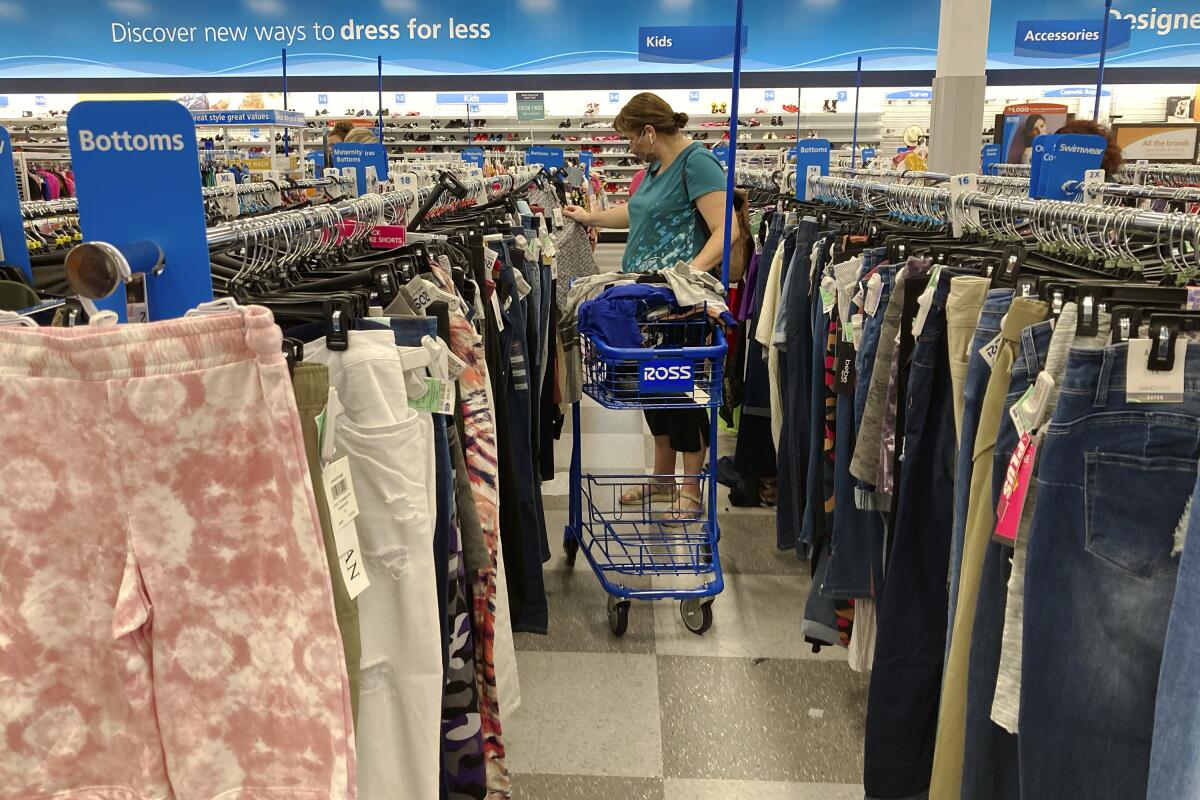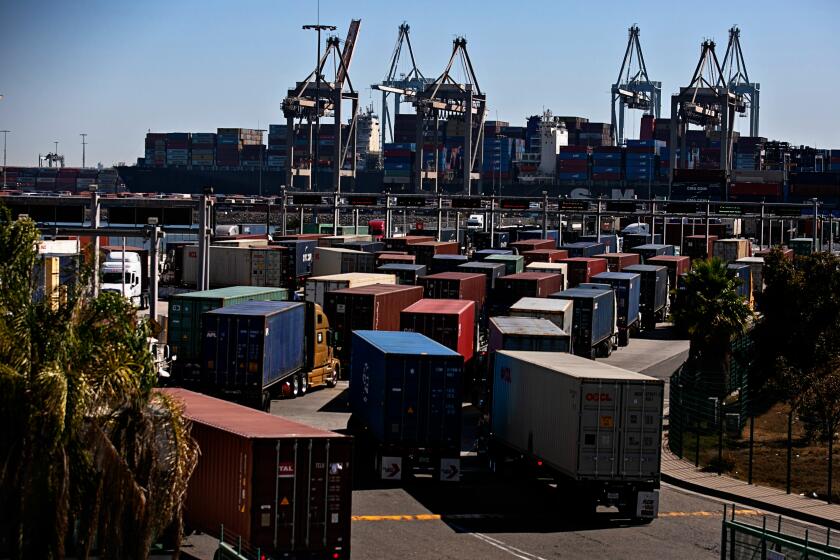Inflation rises 5.4% from a year ago, matching biggest jump in 13 years

- Share via
WASHINGTON — Another surge in consumer prices in September sent the U.S. inflation rate to 5.4% from a year ago, matching the highest rate since 2008 as tangled global supply lines continue to create havoc.
Consumer prices rose 0.4% in September from August as supply chain disruptions kept many goods scarce. The costs of new cars, food, gas and restaurant meals all jumped.
The annual increase in the consumer price index matched readings in June and July as the highest in 13 years, the Labor Department said Wednesday. Excluding the volatile food and energy categories, core inflation rose 0.2% in September and 4% compared with a year ago. Core prices hit a three-decade high of 4.5% in June.
The unexpected burst of inflation this year reflects sharply higher prices for food and energy, but also new and used cars, hotel rooms, clothing and furniture, among other goods and services. COVID-19 has shut down factories in Asia and slowed U.S. port operations, leaving container ships anchored at sea and consumers and businesses paying more for goods that don’t arrive for months.
“Price increases stemming from ongoing supply chain bottlenecks amid strong demand will keep the rate of inflation elevated, as supply/demand imbalances are only gradually resolved,” said Kathy Bostjancic, an economist at Oxford Economics, a consulting firm. “While we share the Fed’s view that this isn’t the start of an upward wage-price spiral, we look for inflation to remain persistently above 3% through mid-2022.”
The global economy is entering the final quarter of 2021 with a mounting number of head winds threatening to slow the recovery from the pandemic recession and prove policymakers’ benign views on inflation wrong.
Higher prices are also outstripping the pay gains many workers are able to obtain from businesses, who are having to pay more to attract employees. Average hourly wages rose 4.6% in September from a year earlier, a healthy increase, but not enough to keep up with inflation.
Gas prices jumped 1.2% last month and have soared more than 42% compared with a year ago. Electricity prices rose 0.8% in September from August.
Supply chain disruptions continue to drive new car prices higher — 1.3% last month and 8.7% from a year ago, the largest 12-month increase since 1980. A shortage of semiconductors has restrained vehicle production and left fewer cars on dealer lots.
Used car prices, which spiked this summer as Americans sought to purchase them when they couldn’t find new cars, dropped for the second straight month. Clothing costs also declined, falling 1.1%.
Housing costs also rose at a strong clip, as builders say they cannot find all the parts and workers they need to build new homes as quickly as they’d like. Rents rose 0.5% in September and a measure of home prices climbed 0.4%. If sustained, those increases will put significant upward pressure on prices, as those two measures account for nearly one-third of the CPI.
The Port of Los Angeles will operate around the clock as supply chain problems threaten holiday shopping season.
The rapid price increases have raised pressure on the Federal Reserve, which has pegged its benchmark interest rate at nearly zero to spur more borrowing and spending. Yet inflation is far above its target of 2%. Fed Chair Jerome H. Powell has repeatedly said that the price gains should “abate” next year, bringing inflation closer to the target.
Fed Vice Chair Richard Clarida echoed that view in remarks Tuesday.
“The unwelcome surge in inflation this year, once these relative price adjustments are complete and bottlenecks have unclogged, will in the end prove to be largely transitory,” he said.
Raphael Bostic, president of the Atlanta Federal Reserve, joked Tuesday in separate remarks that “transitory” is now seen as the equivalent of a curse word at the Atlanta Fed. Bostic said that the price spikes mostly reflect the pandemic’s impact on supply chains and added they should eventually fade, but it will likely take longer than many Fed officials initially expected.
The price increases are also a vulnerability for President Biden, who has been under attack by Republicans for spurring inflation with his $1.9-trillion rescue package enacted in March of this year.
The White House said Wednesday that it has helped foster an agreement to keep the Port of Los Angeles open 24 hours a day, seven days a week, in an effort to ease supply bottlenecks and reduce price pressures.
More to Read
Inside the business of entertainment
The Wide Shot brings you news, analysis and insights on everything from streaming wars to production — and what it all means for the future.
You may occasionally receive promotional content from the Los Angeles Times.










